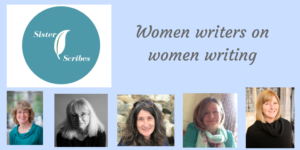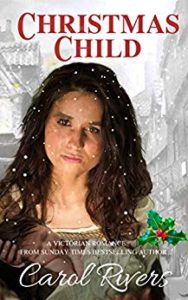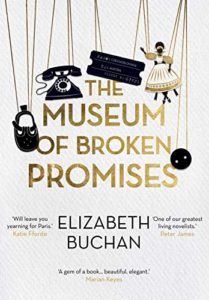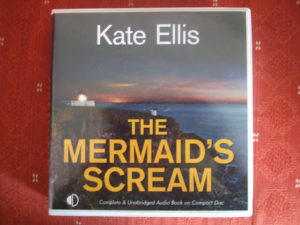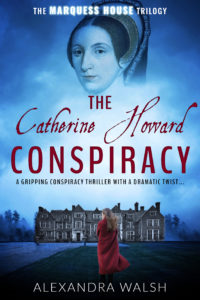Circe by Madeline Miller
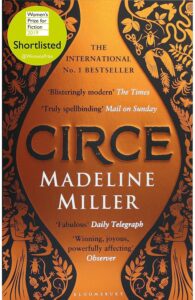 A rich reweaving of Circe’s story with threads from a number of other Greek legends pulled expertly together into a spell-binding book. How very appropriate for a witch.
A rich reweaving of Circe’s story with threads from a number of other Greek legends pulled expertly together into a spell-binding book. How very appropriate for a witch.
It did take me a while to get into the story, but when I looked back at the end, not an incident – even from her childhood – was wasted. Everything was poured into making Circe the woman she became; everything fitted, nothing jarred. An absolute masterclass in building a character.
And indeed, in building worlds. Worlds of faraway and long ago, inhabited by gods and mortals, and creatures somewhere between the two. Once I was past the initial chapters I became totally immersed in the story, even when it was so brutal I did not want to be. Story-telling at its best.
The Socialite Spy by Sarah Sigal
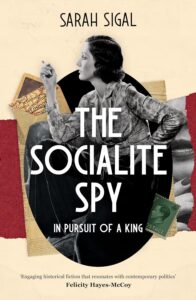 The sense of place and time in this book was wonderful and I was transported back to the highest echelons of society in 1930s London, which was at times far darker than I might have imagined.
The sense of place and time in this book was wonderful and I was transported back to the highest echelons of society in 1930s London, which was at times far darker than I might have imagined.
Fashion journalist and socialite Lady Pamela More finds herself drawn into the world of espionage as she is asked to report back on Wallis Simpson and her circle, in particular any fascist sympathies she might have. The historical characters including Simpson, the King and the obnoxious Moseley are blended seamlessly with fictional ones, and as Lady Pamela becomes more immersed in their world the plot stretches and thickens and, in the best tradition of Le Carre et al, it becomes hard to know who to trust.
My only issue with this book is that the personal story of Lady P’s childlessness seemed superfluous to the main plot, and sat rather strangely alongside it. The spy story was quite enthralling enough on its own.
No 23 Burlington Square by Jenni Keer
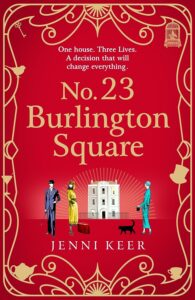 Such a great premise for a book; a sliding doors-type story based on which prospective tenant sentimental yet wise Agnes Humphries will choose. Perhaps in will be her troublesome niece, Clara. Or the very respectable Mr Thomson, or even shy Mercy Mayweather who lost her husband in the war.
Such a great premise for a book; a sliding doors-type story based on which prospective tenant sentimental yet wise Agnes Humphries will choose. Perhaps in will be her troublesome niece, Clara. Or the very respectable Mr Thomson, or even shy Mercy Mayweather who lost her husband in the war.
Set in 1927, the book is structured to take each scenario in turn, and for me Clara’s story took a tad too long to reach her turning point. Once it did I was certainly more invested in the characters’ individual tales and the way they twist together with the existing residents of 23 Burlington Square – and eventually with each other.
The Perfect Golden Circle by Benjamin Myers
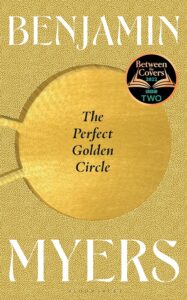 A beautifully crafted work of literature that pulled me in, night by night, and circle by circle. Many small stories of the lives of cornfields after dark, drawn together by a single summer in the lives of Calvert and Redbone, unlikely friends and co-conspirators with a single purpose.
A beautifully crafted work of literature that pulled me in, night by night, and circle by circle. Many small stories of the lives of cornfields after dark, drawn together by a single summer in the lives of Calvert and Redbone, unlikely friends and co-conspirators with a single purpose.
This is a literary novel; don’t expect a fast paced plot or a satisfying ending. It’s one to savour during the journey. The descriptions that take you into the countryside at night; the interactions of the characters, the designs they create and the reasons for it. Four stars not five because of the retrospective preachiness as the book nears its end.

